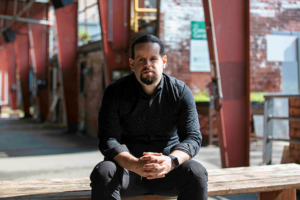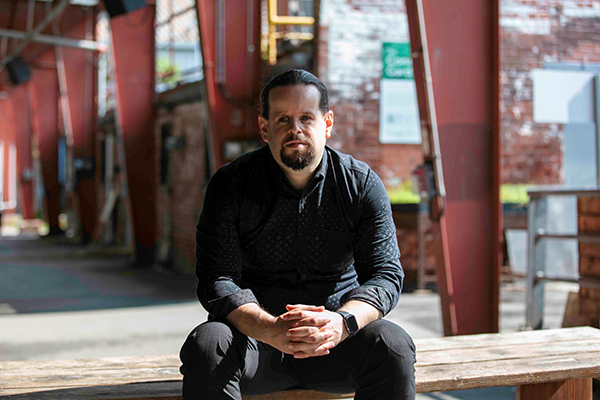 By Joe Baker, Tourism HR Canada Board Member and OTEC’s Strategic Advisor
By Joe Baker, Tourism HR Canada Board Member and OTEC’s Strategic Advisor
Originally published in Canadian Lodging News
As we experience change in seasons, the challenges ahead of the Canadian hospitality and tourism industry are continuously formidable. And so are its leaders and its workforce. Ever resilient, we are trained to persevere in the face of complexity and disruption.
As challenging as 2020 has been, many of us are looking ahead to the days of containing this destructive virus, restoring consumer confidence and fighting to bring back business levels across all segments of our industry. While our attention may be currently focused on damage control, risk mitigation and the eternal 2020 call for change leadership, let’s take a moment to be strategic about the future foundation of our business – our people.
We have spent a lot of time exploring how damaging this pandemic has been on our workforce. Let’s now turn to looking at early projections of the recovery cycle. Tourism HR Canada reports that employment in Canada’s tourism sector will not return to 2019 levels until the year 2023. The accommodation industry specifically, will not be returning to 2019 employment levels until 2024.
This data may take a moment to digest. But now that we have some future projections, lets focus on how we can begin to build a talent pipeline to support our businesses as the world struggles out of this pandemic.
It was not too long ago that the Canadian hospitality and tourism industry was facing a pretty acute labour shortage. While many businesses are currently navigating through the challenges of layoffs and terminations, believe it or not some operators are still in a position to be actively hiring. Many of these operators are reporting further labour challenges. Anecdotal evidence suggests the CERB and EI options are more appealing than returning to work at present. I do not believe this will always be the case, so let’s continue to look forward.
What’s unique about the projections for the tourism industry recovery and by extension, the growth in employment opportunities, is the timeline itself. We need to be thoughtful now about our talent strategy for the future so we are not caught underprepared when things start picking up. Even amidst a global pandemic, there are still cohorts of students just beginning their college and university programs across the country and around the world. With an average program length of 2 – 4 years, these eventual graduates will be some of the freshest sources of talent for our next normal – Tourism 2.0.
Colleges and universities currently attract a mix of domestic and international students. The hospitality and tourism focused student body is not unlike the diversity within the industry workforce. Tourism HR Canada reports that tourism provides significant employment for young people. The 2016 census showed that 560,000 youth (age 15—24) worked in tourism. They make up 31 per cent of Canada’s tourism workforce, compared to only 13 per cent of the overall labour force and population. The tourism sector is also a significant source of employment for newcomers to Canada. The 2016 census showed that 28 per cent of tourism employees were immigrants or non-permanent residents.
What does this mean to you as an operator in 2020? It means that while this year has been devastating, there are still courageous people from within our communities and around the world hitting the digital books to learn how to build their careers in the Canadian hospitality and tourism industry. Wherever your business is located, you can be sure there is a college or university close by with hospitality and tourism programs. This also presents an opportunity to re-connect with your local institute of higher learning. Our workforce of the future will benefit from hearing the voices of those who built their own careers in this sector and those fighting for the future of Canadian tourism.
Welcome the class of 2022, 2023 and 2024 into your organization as we return to the bright future we have worked so hard to create. There are many ways industry organizations can build bridges with post-secondary institutions. We need to create collaboration now more than ever. Become a program advisor, a guest lecturer, a sponsor of work-integrated learning or a supporter of career events. This may all seem like a lesser priority considering the challenges your organization may be facing today. But if we want to climb back to 2019 levels of business success, we need to continue to encourage young Canadians and future Canadians to choose careers in hospitality and tourism.
For more insight into the potential impact these graduates can have in your workplaces, be sure to join me at the Tourism Industry Association of Canada’s Tourism Congress on November 17 and 18. I will be delivering a TIAC Talk titled “International Students: Canada’s Emerging Tourism Talent.” Registration is free this year and it is completely online at www.tourismcongress.ca
Joe Baker has recently joined OTEC as a Systems Leadership and Integrated Strategy Advisor. In his new position, he focuses on supporting tourism industry recovery efforts in collaboration with the many organizations involved in several active projects and initiatives. He is an experienced speaker, facilitator and writer. Contact him at: jbaker@otec.org

